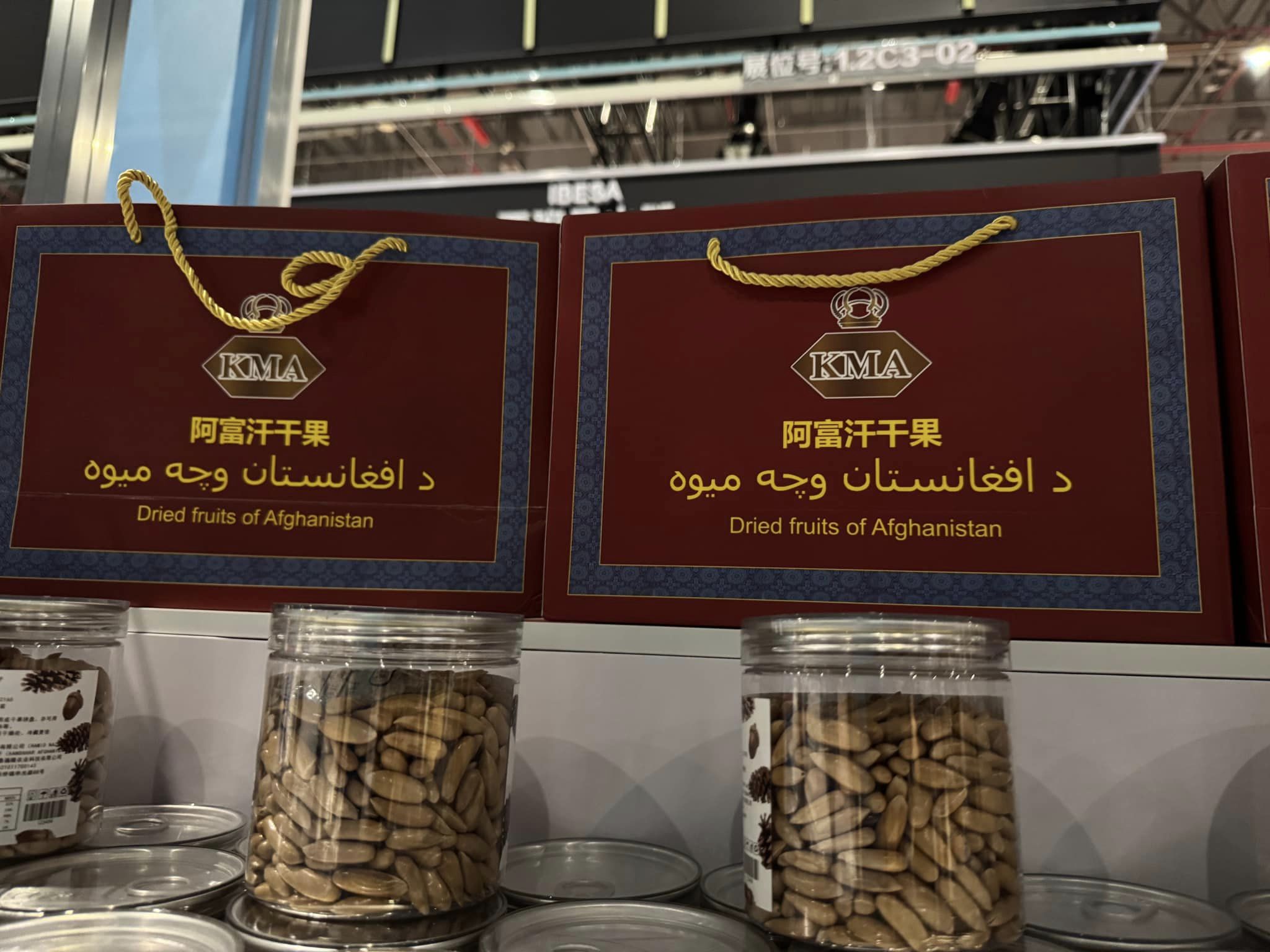The 7th China International Import Expo was inaugurated on November 5 in Shanghai, featuring nearly 3,500 companies from 152 countries, regions, and international organizations. Afghan enterprises are among the participants, showcasing premium products like pine nuts, saffron, and other dried fruits, with hopes to gain a foothold in China’s extensive and open market.
Starting from December 1, China will eliminate tariffs on selected Afghan export items, bringing the tariff rate on these goods to zero. This development is promising for Afghan exports to China, offering substantial support for Afghanistan’s agricultural and handicraft industries, while also enhancing trade incentives.
On October 31, a direct cargo train between China and Afghanistan resumed operations, providing essential transportation conditions for Afghan exports to China. This train departs from Nantong in China’s Jiangsu province, crosses into foreign territory via the Khorgos port in Xinjiang, and finally reaches Hairatan Port in Mazar-i-Sharif, Afghanistan.
This series of policies underscores China’s commitment to greater openness and cooperation with the world, also strengthening the confidence of the Afghan people in their economic future. The 7th China International Import Expo hosts not only the world’s top 500 companies and key enterprises in various sectors but also showcases products from small businesses in developing countries, ranging from high-tech items to basic agricultural goods. This cooperation reflects equal and friendly relations between China and countries worldwide.
Since the first International Import Expo, China has provided significant facilities for least developed countries, including support for exhibition space, logistics, and hospitality. Afghan pine nuts, Bangladeshi handicrafts, Zambian honey, Tanzanian cashews, and more are presented to the Chinese market through this expo. This year, a total of 37 least-developed countries are participating, with more than 120 exhibition booths provided for them free of charge.
In line with expanding unilateral openness and shared growth, China will eliminate tariffs on items from these least-developed countries listed, starting from December 1. This pledge, made by Chinese President Xi Jinping on September 5 at the Beijing Summit of the Forum on China-Africa Cooperation, will benefit 33 African nations and Afghanistan.
Amid long-term reconstruction following decades of war, Afghanistan aims to overcome issues related to U.S. financial and economic sanctions and frozen assets, working to explore growth opportunities through natural resources and local products. China’s market access and supportive partnership offer promising avenues for Afghanistan’s economic development.
Afghanistan has also established rail and air routes to facilitate exports to China. Afghan pine nuts were first exported to China by a special flight in 2018, marking a significant trade milestone between the two countries. With the reactivation of the direct train route, the export of Afghan agricultural products and mineral resources to China is expected to grow, further expanding economic and trade cooperation between the two nations.











